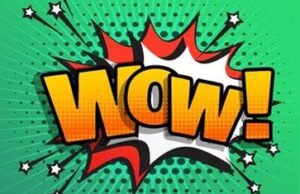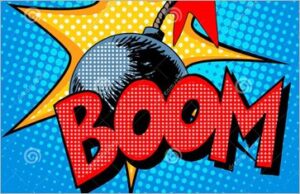Goal-Setting for Teachers: 8 Paths to Self-Improvement By Jennifer Gonzalez...
Read MoreDiscover Your Superpower
Teaching Made Simple through support and collaborative practices
Who We Are
Teacher Mod Squad are an experienced team of certified teachers passionate about making a difference for students with diverse learning needs.
Our Mission
Teacher Mod Squad mission is to empower educators, families, and communities by transforming learning.
Our Vision
Our vision is to see every student’s unique strengths are recognized and nurtured through innovative teaching.
Our Impact
Teacher Modification Squad (TMS) empowers educators, support staff, and parents by providing essential, differentiated learning resources and enrichment services.

Our Story
Teacher Modification Squad (TMS) was created in 2017 as an online educational resource developed by certified teachers to provide MODIFIED assignments for students with learning challenges. We understand there is no “one size fits all” within the academic arena; therefore, it is our belief that by sharing diverse resources, a more personalized learning experience can greatly benefit our stakeholders. Thus, TMS is prepared to assist the community of teachers, support staff, and parents of exceptional children in ultimately becoming barrier breakers. In 2024, TMS was reimagined to include vital TMS Educational Consulting for students with intellectual disabilities, further solidifying our dedication to supporting students on their journey towards success.
TMS Educational Consulting was founded in 2024 by Regina Christian-Massey, a passionate educator committed to supporting young adults with learning disabilities. Inspired by her experiences working with students in a traditional educational setting, Regina envisioned a space where young adults with intellectual and developmental disabilities could transition into adulthood while further developing their skills for independent living.
Foundational, Developmental & Sustainability Principles
Foundational

FAMILY INFLUENCE
Foundational

COMMUNITY CONNECTIONS
Foundational

SCHOOL ENVIRONMENT
Developmental

WHOLE CHILD PERSPECTIVE
Developmental

21st CENTURY PREPAREDNESS
Sustainability

BARRIER BREAKERS
Our Objective
At Teacher Mod Squad, our mission is grounded in four core principles: WeEducate, WeGrow, WeServe, and WeLearn. These pillars reflect our commitment to empowering educators and supporting all learners—especially those with exceptionalities—through collaboration, innovation, and purpose-driven teaching strategies. We believe in sharing the load, simplifying modifications, and creating meaningful learning experiences that drive student success.
WeEducate
At TMS, we believe every student deserves access to grade-level success. We support educators in delivering differentiated, specially designed instruction that breaks learning barriers and meets students where they are.
WeGrow
At TMS, we believe every student deserves access to grade-level success. We support educators in delivering differentiated, specially designed instruction that breaks learning barriers and meets students where they are.
WeServe
We build a network of educators working together to support learners with disabilities. Our classroom-ready resources are designed to enhance engagement, reduce frustration, and simplify the modification process.
WeLearn
Empowering educators through shared knowledge. At TMS, we support teachers by refining lessons to overcome challenges for struggling learners and ensure success in active learning environments.
Empowering Independence Through Practical Experience
These very special learners can make gains both in their personal and academic lives, overcome obstacles and ultimately become barrier breakers. By changing viewpoints and breaking the barriers associated with learning disabilities, we can improve student outcomes.
TMS was reimagined last year to include a non-profit that provides transition services for young adults with intellectual disabilities who are aging out of school systems—many of whom are not ready for adulthood and the independent living experience.
Testimonials
Insights & Ideas
Education is the process of facilitating learning
Education is the process of facilitating learning by Melissa Kelly...
Read MoreThe Best Back to School Tips from Real Teachers
The Best Back to School Tips from Real Teachers By:...
Read More


